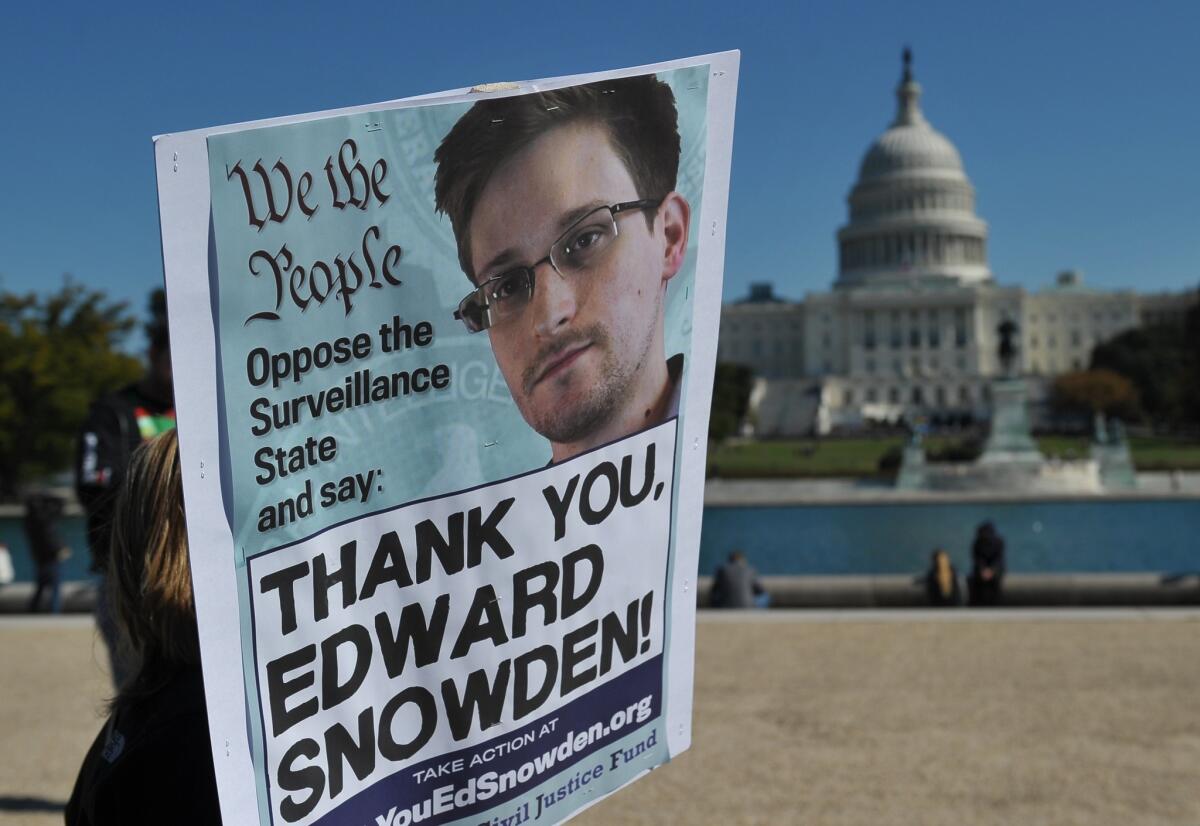Snowden leaks lead Americans to scale back online activity, survey finds

- Share via
In the nearly two years since Edward Snowden leaked secrets about U.S. government online surveillance, about a third of U.S. adults have taken steps to guard their Internet behavior more closely, according to a new survey.
But few have adopted the strongest measures to protect their privacy.
The Pew Research Center survey found that 87% of U.S. adults queried had heard about the Snowden leaks, and 34% of them subsequently took at least one action to shield their privacy.
Some adjusted social media settings or put off social media altogether. Apps and search engines have been avoided. Others have tried to talk in person instead of through chat apps or the phone.
The biggest change noted was with passwords — 25% have adopted stronger ones. Email was also a big pivot point, with 18% of adults aware of the U.S. surveillance efforts saying they have changed their email usage at least somewhat.
Those U.S. citizens most concerned about surveillance were the most likely to change behavior, which might seem obvious. Still, no more than 10% of those aware of U.S. surveillance turned to powerful measures such as do-not-track, encryption and anonymity software. Tools like Tor, PGP and proxy servers can add to privacy and security, but often are cumbersome to install and use.
While 54% of those surveyed said it is OK for the government to monitor communications of foreign citizens, just 40% said it was acceptable for the government to track communications of U.S. citizens.
Chat with me on Twitter @peard33






